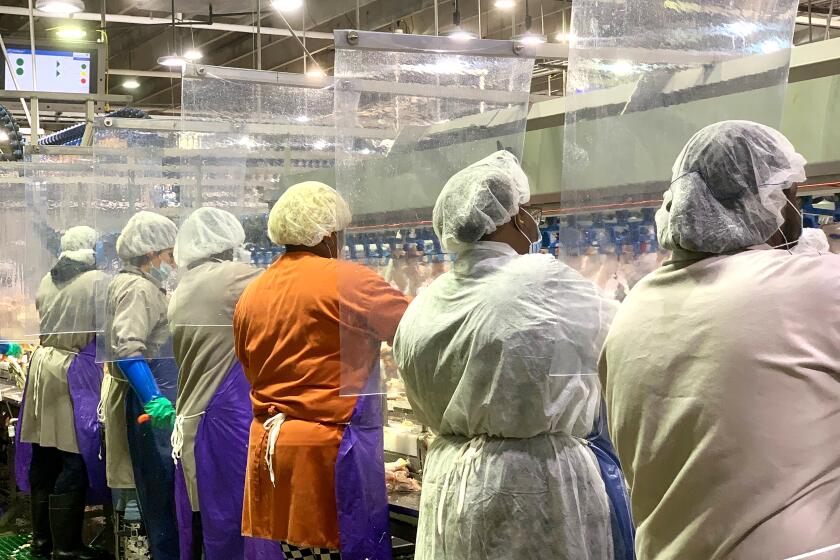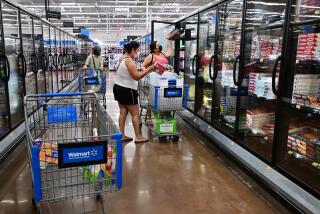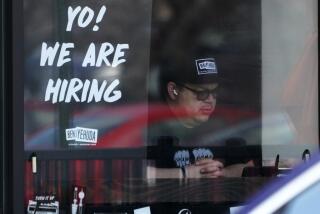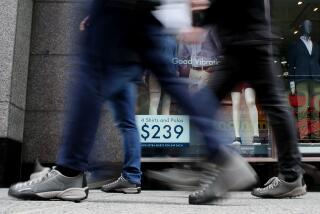Opinion: Mitch McConnell is determined to make workers canaries in the coronavirus coal mine
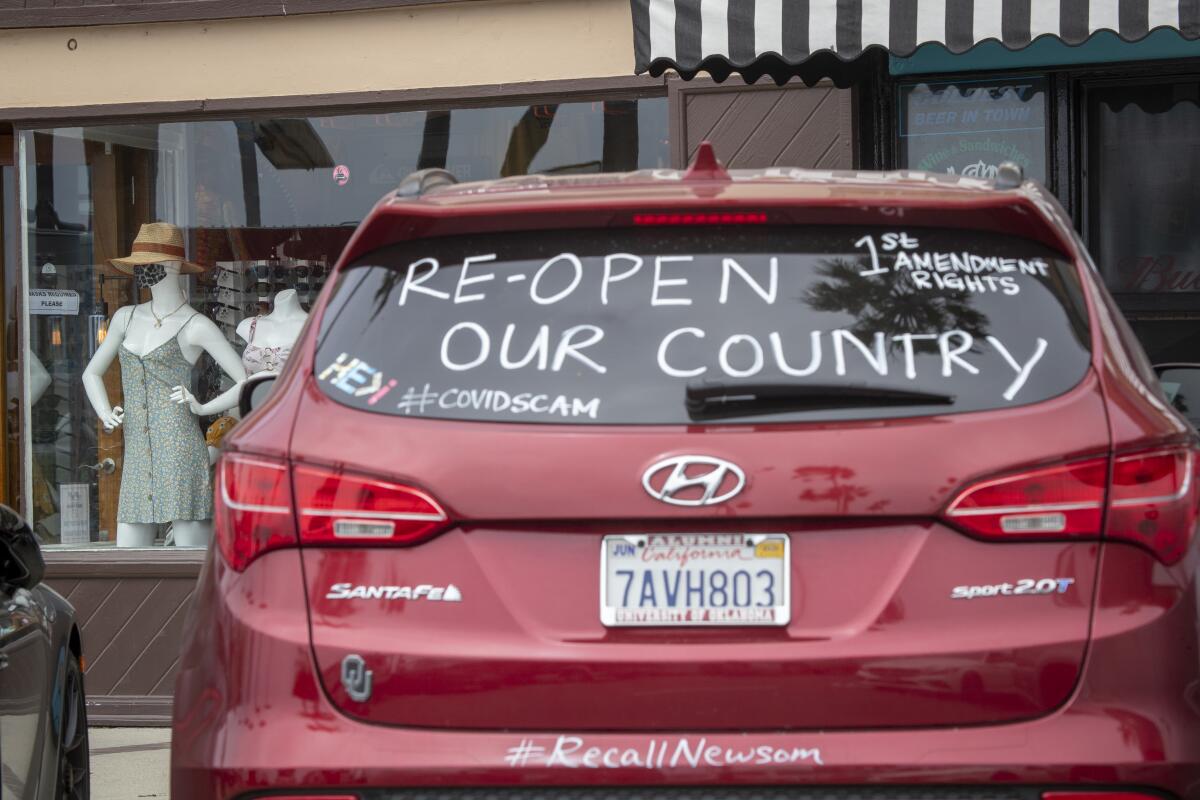
It may not be an official recession yet — technically, the economy has to contract for two consecutive quarters to qualify for that designation. But we’re undoubtedly in the early stages of one, as the U.S. Bureau of Economic Analysis signaled Wednesday when it estimated that GDP fell sharply in the first quarter of 2020. It was the biggest quarterly decrease since the crippling 2008-09 recession, and yet it pales in comparison with the epic 37% decrease that IHS Markit projects for the quarter we’re now slogging through.
Maybe that helps explain why so many states are starting to lift their coronavirus stay-at-home orders even though they don’t have the capacity to test workers for the virus or trace contacts on a mass scale.
Granted, the restraints weren’t designed to prevent every single person from contracting the coronavirus (and obviously, they didn’t); they were intended to prevent healthcare systems from being overwhelmed (and they did). But critics of the states’ moves warn that bringing groups of people back into workplaces, malls and movie theaters will lead to a new surge of infections, pushing the demand for treatment beyond our capacity to provide it.
Caught in the middle are the employees who will be summoned back to their cubicles, cash registers, assembly lines and other places where they will be far less safe from the coronavirus than they were at home. The Times editorial board wrote about the plight of one such group Wednesday, the workers in meat processing plants that President Trump has ordered to stay open despite a series of coronavirus outbreaks there.
The White House indicated Tuesday that the order wouldn’t impose any new requirements on the plants to protect worker health and safety, but rather asserted that “these processors will continue to follow the latest guidelines from the Centers for Disease Control and Prevention (CDC) and the Occupational Safety and Health Administration (OSHA).” If their record so far is any indication, “continuing to follow” will translate into thousands of new infections.
Meat processing plants have shut down as COVID-19 cases turned up among workers and inspectors. Trump’s solution? Force the shuttered plants to reopen.
Senate Majority Leader Mitch McConnell (R-Ky.) threw his own grenade into the room Tuesday, telling Fox News that any new economic rescue bill coming out of Congress is going to have to provide “litigation protection for those who have been on the front lines,” including healthcare workers and businesses. Exactly what this liability shield would cover wasn’t clear, but liberals naturally leaped to the conclusion that McConnell wanted to stop employers from being sued by workers whom they had put in unsafe conditions — an issue some business leaders had recently raised with the White House.
Here’s how McConnell put it on Fox: “Imagine you’re a businessman thinking about reopening, and you’ve heard that trial lawyers all over the country are sharpening their pencils, getting ready to sue you, claiming that you didn’t engage in proper distancing or other issues related to health and safety. We can’t pass another bill unless we have liability protection. That’s the only way we’re ultimately going to begin to get past this, and that is to begin to open up the economy again. We have to have businesses brave enough to open up again, employees brave enough to go back to work.”
Rahm Emanuel’s words about never letting a crisis go to waste come to mind here. Tort reform has long been near the top of corporate America’s wish list, and the COVID-19 pandemic presents an inviting pretext. But the GOP has to pick its poison: If it wants to stop the government from regulating, as the Trump administration has done, it has to let the courts pick up the pieces. Otherwise, negligence and the aggressive externalization of costs become acceptable ways of doing business.
Some employers also have complained that the temporarily enhanced unemployment benefits are so generous, the workers they’ve laid off or furloughed don’t want to come back to their jobs. The Wall Street Journal reported Wednesday that the temporary boost has raised the average weekly benefit to $978, which is more than half the full-time U.S. workforce made per week in the first quarter of this year. The percentage is likely to be even higher among the more than 26 million workers newly sidelined by the pandemic, because a huge number of them are in low-paying service and retail industry jobs.
But once the stay-at-home orders are lifted, it may become considerably harder for workers to collect unemployment benefits instead of going back to the jobs they’d lost. Much depends on how each state’s unemployment insurance departments handle the issue. Here’s a good example. According to the Texas Tribune, the Texas Workforce Commission initially said workers couldn’t collect benefits if their jobs became available again; then it said workers may have some latitude to stay home if they feared getting sick or making their coworkers sick.
That brings us back to the issue of whether employers will be required to provide a safe work environment. If so, workers won’t have a legitimate claim to stay on unemployment, even if the benefits are considerably larger than their paychecks. If not, employers who offer low wages and high risk may rightly find few takers unless the state or Congress takes that choice away.
More to Read
A cure for the common opinion
Get thought-provoking perspectives with our weekly newsletter.
You may occasionally receive promotional content from the Los Angeles Times.
